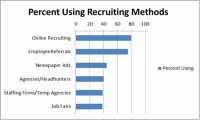Work with Your Community to Train the Next Generation
Strong partnerships between employers, educational institutions, and local communities are essential for effective workforce training programs, according to a blog from the U.S. Commerce Department. Secretary Penny Pritzker had recently announced a strategic vision for the Department of Commerce, which includes a focus on ensuring that workers are prepared with the skills that employers need. […]


